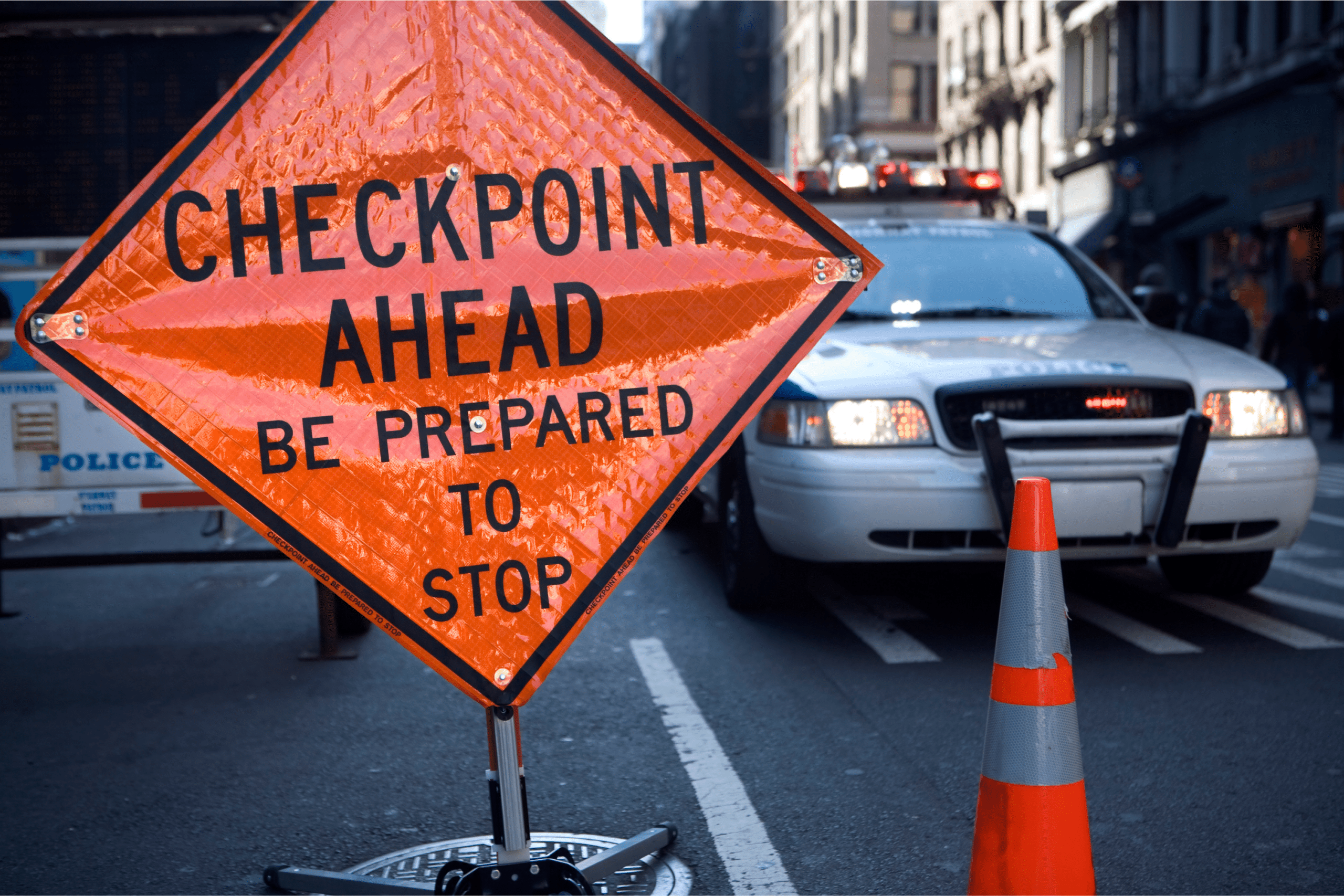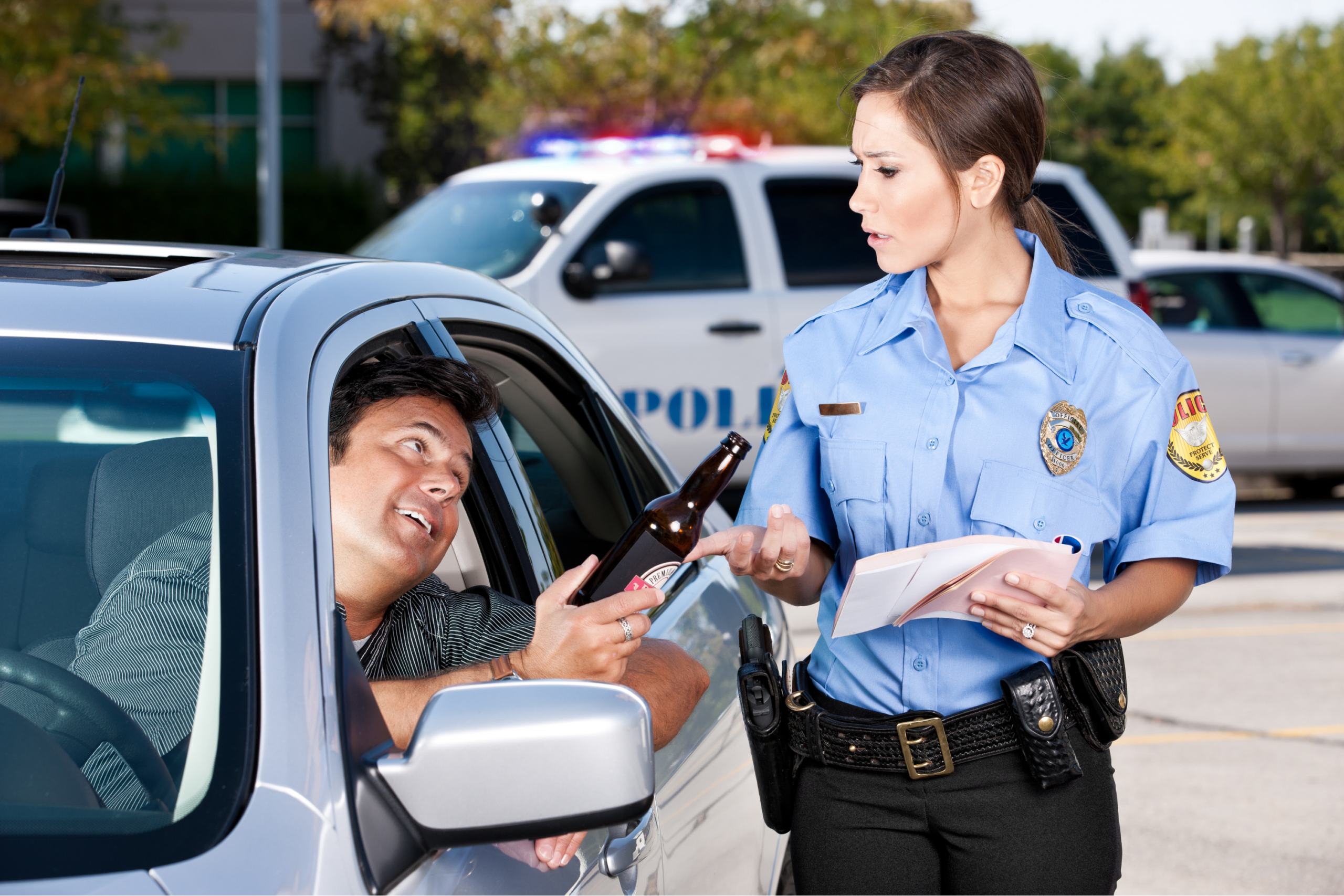Driving While Impaired (DWI) checkpoints are a common method used by law enforcement agencies to ensure road safety and detect impaired drivers. In North Carolina, these checkpoints are legal, but it’s crucial for individuals to be aware of their rights when encountering them.
Understanding what law enforcement can and cannot do at DWI checkpoints empowers individuals to protect their rights. In this blog, we will explore the legal landscape surrounding DWI checkpoints in North Carolina, discuss individual rights, and emphasize the importance of seeking legal counsel when facing DWI charges.
The Legality of DWI Checkpoints in North Carolina
DWI checkpoints, also known as sobriety checkpoints, are legal in North Carolina. These checkpoints are set up at predetermined locations to stop vehicles and assess drivers for signs of impairment. The primary purpose is to enhance road safety by deterring drunk driving and identifying individuals driving under the influence of alcohol or drugs.
While DWI checkpoints are legal, law enforcement officers must adhere to specific guidelines to ensure their constitutionality. The North Carolina Constitution and the U.S. Constitution protect individuals from unreasonable searches and seizures. As such, the legality of a DWI checkpoint depends on whether it meets certain constitutional standards, including advance notice, neutral site selection, and the use of systematic procedures.
Your Rights at DWI Checkpoints
Understanding your rights at DWI checkpoints is crucial to navigating these encounters smoothly. Here are some key rights you should be aware of:
You have the right to remain silent and cannot be compelled to answer any questions beyond providing identification and vehicle-related information. While being polite and cooperative is advised, you are not obligated to discuss your activities or consumption of alcohol.
North Carolina law does not require drivers to submit to field sobriety tests at DWI checkpoints. While refusal may result in a license suspension, it can also prevent law enforcement from gathering potentially incriminating evidence against you.
You have the right to refuse a search of your vehicle. Law enforcement officers need probable cause or a warrant to conduct a search. Politely assert your right to refuse without providing consent.
North Carolina has implied consent laws, which means drivers implicitly consent to breathalyzer tests when operating a vehicle. Refusing a breathalyzer test can lead to consequences such as license suspension. However, it’s essential to consult with an attorney before making decisions about testing.
What Law Enforcement Can and Cannot Do
Law enforcement officers must follow strict protocols during DWI checkpoints. Understanding what they can and cannot do is essential for protecting your rights:
Officers must have reasonable suspicion to stop a vehicle. Random stops without any basis for suspicion are unconstitutional. If stopped without reasonable suspicion, your attorney can challenge the legality of the stop.
Detentions at DWI checkpoints must be brief. Officers cannot unnecessarily prolong the stop without reasonable suspicion of impairment. While officers have the right to visually inspect the inside of your vehicle, they cannot conduct a search without probable cause or your consent.
Protecting Your Rights: Tips for Individuals
To protect your rights during a DWI checkpoint encounter, consider the following tips:
Remain calm and polite during the encounter. Avoid confrontations and provide identification and vehicle-related information when asked. You have the right to remain silent. Politely decline to answer questions beyond providing essential information.
Familiarize yourself with your rights at DWI checkpoints to confidently assert them when necessary. If possible, discreetly document the encounter with your smartphone. This may include recording the conversation and taking note of the officers’ actions.
The Importance of Legal Representation
If you find yourself facing DWI charges resulting from a checkpoint encounter, seeking legal representation is crucial. An experienced criminal defense lawyer can assess the circumstances of your case, determine if your rights were violated, and build a robust defense strategy.
If the DWI checkpoint encounter was conducted unlawfully, your attorney can challenge the stop, potentially leading to the exclusion of evidence obtained during the stop. A skilled attorney can scrutinize the evidence against you, including field sobriety tests and breathalyzer results, to identify potential weaknesses in the prosecution’s case.
In some cases, negotiating plea deals or reduced charges may be in your best interest. An experienced attorney can navigate these discussions on your behalf. If your case goes to trial, a knowledgeable criminal defense lawyer can present a strong defense, challenge evidence, and advocate for your rights before the court.
DWI Checkpoints In North Carolina
Knowledge is a powerful tool when facing DWI checkpoints in North Carolina. Understanding your rights, the legality of checkpoints, and the limitations on law enforcement empowers you to navigate these encounters confidently.
If you find yourself charged with a DWI offense, seeking the guidance of an experienced criminal defense lawyer is essential. Your attorney can safeguard your rights, analyze evidence, and build a defense tailored to the specifics of your case, increasing your chances of a favorable outcome in the legal process.










